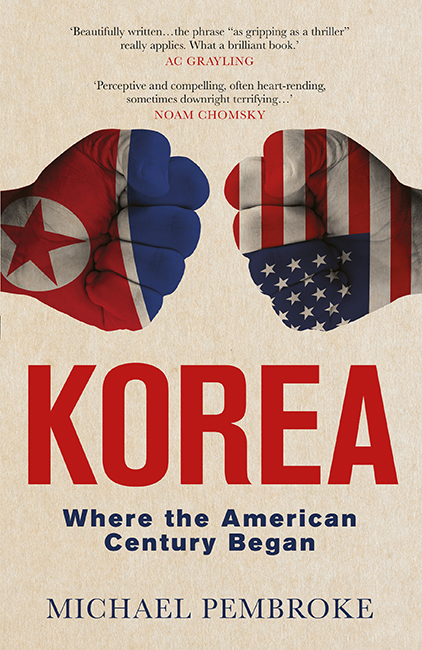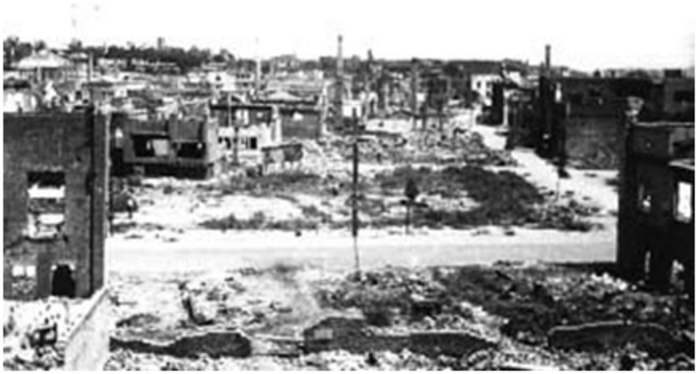‘To put North Korea 2018 in context, read Australian Michael Pembroke on the Korean War: review note’, Honest History, 6 March 2018 updated
New South Wales Supreme Court judge, Michael Pembroke, born 1955, has written a brilliant book, Korea: Where the American Century Began, published by Hardie Grant earlier this year. The complimentary comments on the book’s cover come from AC Grayling, Noam Chomsky, and former Australian Ambassador to South Korea, Richard Broinowski.
 The book’s strengths are its lucid prose, its command of a wide range of sources (including declassified material), the author’s ability to balance passion with forensic detail, and the way in which he places the Korean conflict of 1950-53 firmly within the long sweep of Korean history. The surprise – for this writer, at least – comes in how loudly the story of Korea 1950-53 resonates today.
The book’s strengths are its lucid prose, its command of a wide range of sources (including declassified material), the author’s ability to balance passion with forensic detail, and the way in which he places the Korean conflict of 1950-53 firmly within the long sweep of Korean history. The surprise – for this writer, at least – comes in how loudly the story of Korea 1950-53 resonates today.
Here are three examples:
- In 1952, President Truman wrote himself a note (now in the United States archives) musing that unless Moscow – which he saw as the power behind North Korea (and China) – changed its policies ‘Moscow, St Petersburg [sic], Mukden, Vladivostock, Peking, Shanghai, Port Arthur, Dairen [sic], Odessa, Stalingrad and every manufacturing plant in China and the Soviet Union will be eliminated’. Even more ambitious than President Trump threatening to ‘totally destroy’ North Korea unless it backs down. (See page 139 of the book and the copy of the note in the documents section of the book.)
- ‘The abortive invasion of North Korea was the first serious misstep of the American Century. Washington’s inexorable wars and interventions of the last six decades can be traced to the attitudes, prejudices and policies revealed during that conflict … Threats to national security, often chimeric or merely ideological, usually geographically distant, began to be pursued relentlessly all over the world.’ (page 209)
- American super-diplomat George Kennan, writing in 1987: ‘Were the Soviet Union to sink tomorrow under the waters of the ocean, the American military-industrial complex would have to remain, substantially unchanged, until some other adversary could be invented. Anything else would be an unacceptable shock to the American economy.’ (page 222)
Pembroke’s book has painstaking notes, a useful bibliography, some stinging epigraphs, and some copies of archival documents, including a record of the agreement (October 1951) of the US Joint Chiefs of Staff to use biological warfare in Korea, if necessary. (It is still unclear what came of this decision.) There is also a description of the battle of Maryang Sam, where Pembroke’s father, an Australian officer, won the Military Cross.
And if anyone wonders why North Korea today seems to be ‘the paranoid peninsula‘, Pembroke’s description of Pyongyang after American scorched earth policies and saturation bombing provides part of the answer. By late 1952, the city’s population was down to 50 000, one-tenth of pre-war, living ‘a troglodyte existence in caves and holes in the ground’ (page 148). General Curtis LeMay of the US Air Force, the mastermind of the bombing campaign, estimated that, ‘Over a period of three years or so, we killed off – what – twenty percent of the population of Korea as direct casualties of war, or from starvation or exposure’ (page 144).
An extract on Pearls and Irritations. Pembroke has appeared on The Drum and 3RRR. Pembroke on the background to the book. Reviewed in Fairfax by John Schauble.
Everyone should read this book.
The U.S. may be under the illusion that it is in control of the train now. But that is not the case. The one clear way for the U.S. to regain the initiative is to return to the threat of war – and there are some around the administration eager to do so.
 Pyongyang 1953 (apjjf.org)
Pyongyang 1953 (apjjf.org)


Leave a Reply
You must be logged in to post a comment.